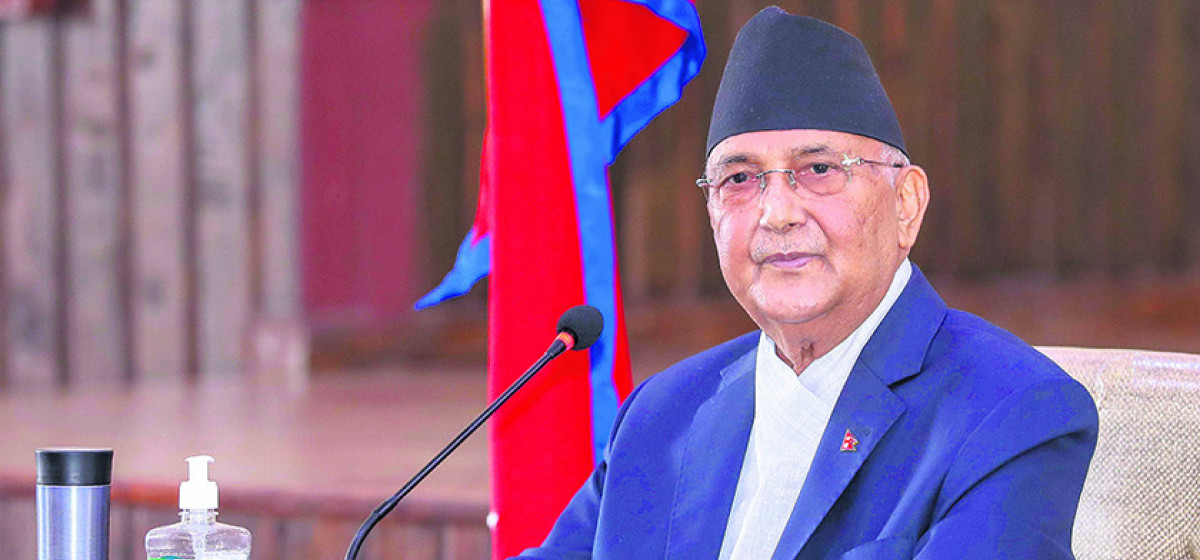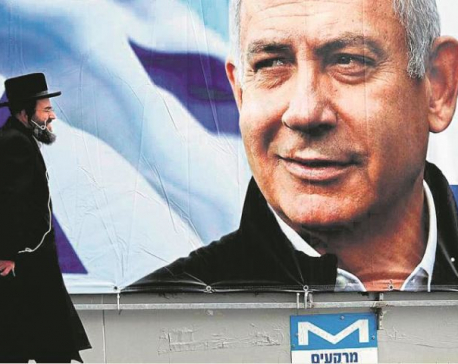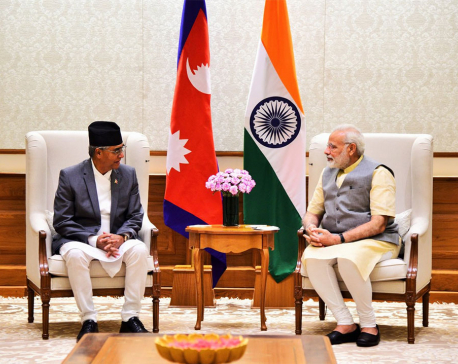
OR
Opinion

More from Author
KP Oli’s tendencies are wholly and growingly anti-democratic. He seems to hold no conception that an MP’s power to vote in parliament is derived from the trust from the sovereign people, and not from the party’s chairman.
The offices of the President and the Prime Minister have begun challenging the pending petitions at the Supreme Court, particularly the case of Sher Bahadur Deuba, whose demand is that the parliamentary majority that he had gathered in May be ratified by the court. This would mean Deuba be appointed as Prime Minister under a coalition government as per Article 76(5). The President and the PM’s legal team assert that the Supreme Court “does not have the authority to appoint a Prime Minister”, adding that the authority sits strictly with only the President. They also argue that, since Deuba’s majority consists of three parties, this is against the spirit of parliament. While half of these lines of attacks are attempts to misrepresent the reality for their own conveniences, they are also otherwise inherently problematic and clash with democratic principles.
First, it purposefully misrepresents the situation itself. It suggests that the Supreme Court is itself appointing the Prime Minister. This is simply incorrect. It is the 146 parliamentarians that are appointing the Prime Minister — indeed, only they can. They are currently requesting the Supreme Court to just ratify their decision. Let’s remember what just happened; the majority decision of parliament to support Deuba was as per Article 76(5) of the constitution, yet the Office of the President refused to endorse it. A chance, and need for course-correction, is why the case has been taken to the court. Rightfully so because it is the Supreme Court (as per the constitution) to enforce and interpret the constitution. The appointment of Deuba as PM will correct the President’s decision not to recognize the legitimacy of the majority of parliamentarians supporting one candidate for Prime Minister, in accord with Article 76(5) of the constitution.
It is blindingly clear this resulted from President Bhandari and PM Oli’s self-interest, but what authority does the President have to not respect the decision of parliamentarians? No one is given this authority, as the vote of the parliamentarian is the vote of the people, and the people are deemed sovereign. This raises a problem with the President and PM’s responses: if a majority of Nepal’s parliamentarians cannot decide their Prime Minister, then who does? Only a parliamentary majority can decide who is Prime Minister, and that person is no longer KP Oli. And it has to be repeated, the parliamentary majority represents the people of Nepal. Their belief that “only the President can appoint the Prime Minister”, therefore, is wholly anti-democratic and things become even more problematic once you realize that the Office of the President only formally executes the decisions of the Prime Minister. Therefore they ultimately argue that, “only the Prime Minister can appoint the Prime Minister.” This is a grossly anti-democratic stance.
While Deuba’s side argues on the democratic principle that the people’s representatives are the parliamentarians, and therefore their decision is the decision of the sovereign people of Nepal, the other side suggests that this right to choose can be removed and then replaced with the wish of the sitting Prime Minister.
KP Oli’s tendencies are wholly and growingly anti-democratic. He seems to hold no conception that an MP’s power to vote in parliament is derived from the trust from the sovereign people, and not from the party’s chairman. He thereby asserts MP’s may not vote according to their own thoughts, but only according to Oli’s wishes. Indeed, his refusal to recognize a majority in parliament for anyone but himself is what brought us here. This raises a simple question for Oli - why have elections at all? If KP Oli’s suggested alternative is election, at present-day, he gravely undermines the rationale for this position. If the presidents of parties decide for all members, what purpose does the voice of each of the 275 elected parliamentarians serve? In that case, let’s remove all but 5 seats from the House of Parliament tomorrow. Parliamentarians became so by campaigning to make the right decisions as they saw it, not on an unspoken promise to relinquish their one vote to the party’s president.
If Oli, today, is attempting to remove and deny the power from the people’s elected representatives, where does that leave his promise to give power to the people in six months via election? He is annulling the very role of an elected candidate at the same time arguing for election.
KPOli’s type of thinking is simply incompatible with a free and functioning democracy. His political nature is monolithic and intolerable of dissent — the very basis of a fascistic character. If we cannot trust him with basic democratic principles, do we trust him to fairly hold and execute the most important democratic event, the national election?
Worse still, some weeks back, KPOli proposed an all-party government be formed under him in an act of desperation, inviting the opposition parties to take part. Today, he states that in a parliamentary democracy, an all-party government is undemocratic. His call to form an all-party government was far-fetched and certainly undemocratic as he invited the opposition parties to join, which would mean there would be no opposition to the government. A government without opposition is certainly undemocratic, but this allegation fails if Deuba is Prime Minister, because if he were appointed, KP Oli and his 90 or so MPs would be in opposition to this coalition government. After all, no majority wants to support PM Oli,— that’s how we got here.
These attack lines presented to the Supreme Court seem extremely poorly thought-out and from blatant dishonesty on democratic principles. Oli has made yet another attempt to defraud democracy. If we are in the best of all possible worlds, the Supreme Court will hopefully dispense with Oli from the post of head of government.
You May Like This

Israel’s Democracy Fatigue
JERUSALEM – If any Western country is suffering from democratic dysfunction, it is Israel. With the country’s political leaders having... Read More...

Sustaining democracy
Regardless of great changes, if mentality, mindset, practices and behavior of our leaders remain the same our democracy will be... Read More...

Indian PM Modi welcomes PM Deuba
KATHMANDU, Aug 23: Indian Prime Minister Narendra Modi has welcomed Prime Minister of Nepal Sher Bahadur Deuba. ... Read More...







Just In
- NRB to provide collateral-free loans to foreign employment seekers
- NEB to publish Grade 12 results next week
- Body handover begins; Relatives remain dissatisfied with insurance, compensation amount
- NC defers its plan to join Koshi govt
- NRB to review microfinance loan interest rate
- 134 dead in floods and landslides since onset of monsoon this year
- Mahakali Irrigation Project sees only 22 percent physical progress in 18 years
- Singapore now holds world's most powerful passport; Nepal stays at 98th












Leave A Comment